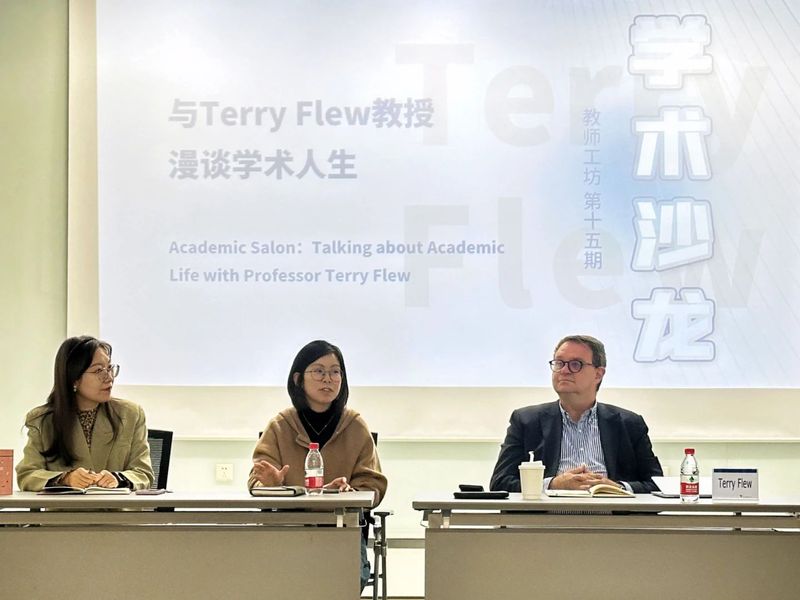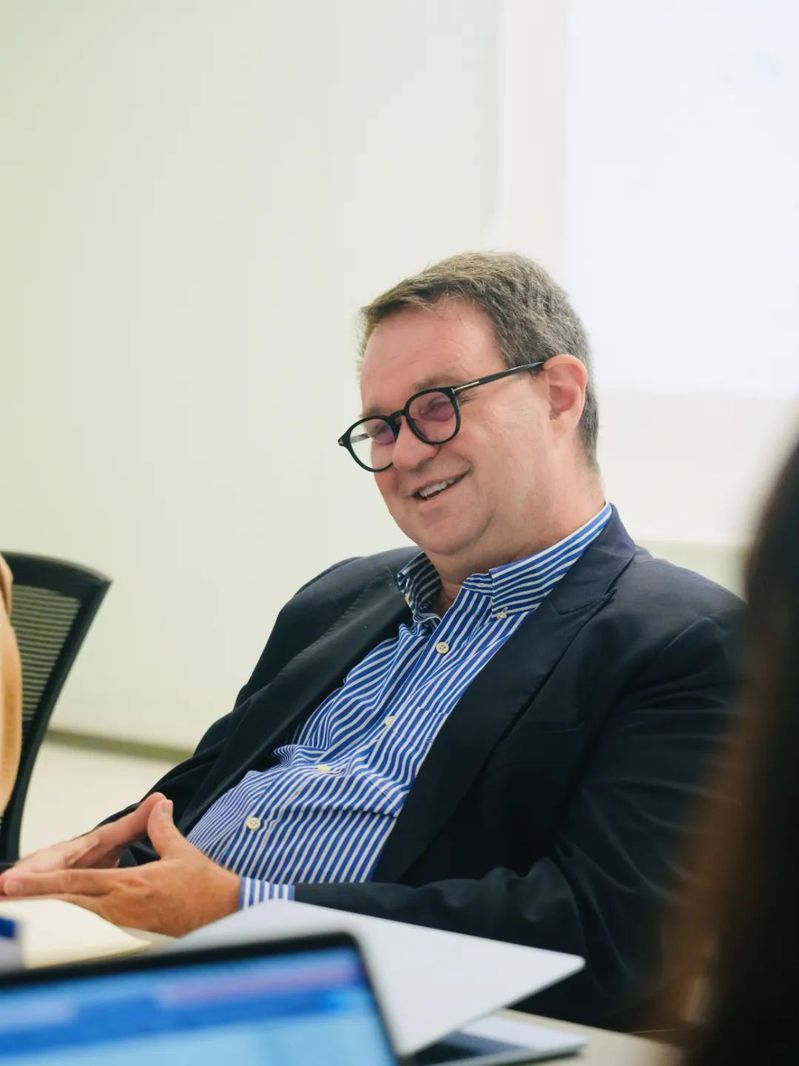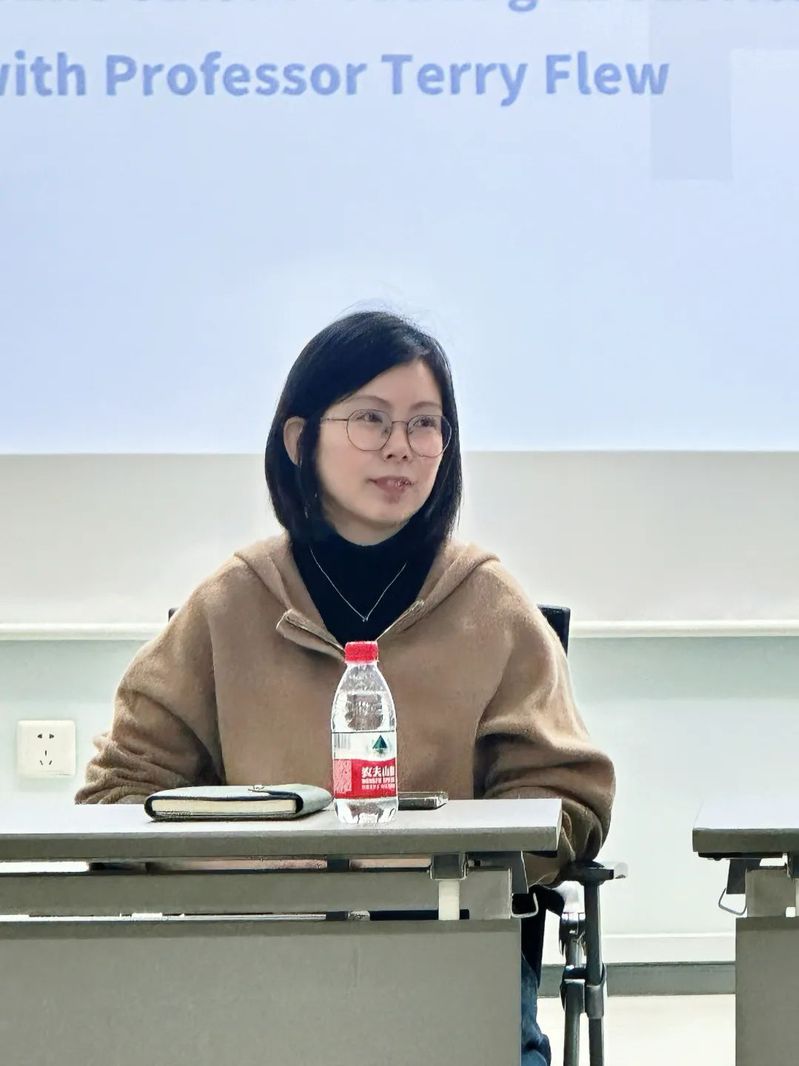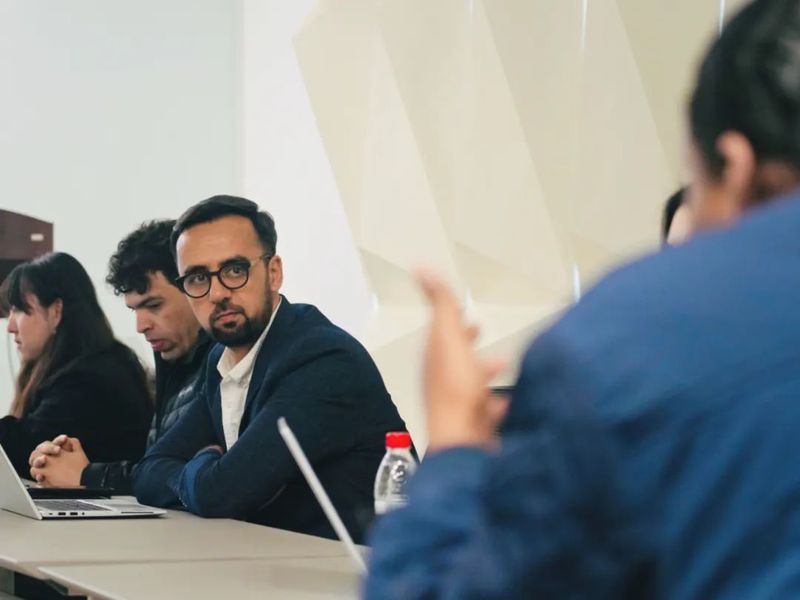
On the morning of April 2, the College successfully hosted the fifteenth session of its Faculty Workshop Academic Salon. The event featured Professor Terry Flew from the University of Sydney and Fellow of the Australian Academy of the Humanities as the keynote speaker, focusing on the paradigm shifts artificial intelligence (AI) is bringing to the field of communication studies. The discussion attracted active participation from faculty and students both domestically and internationally. The session was moderated by Li Siyue, Assistant Dean of the College and a Hundred Talents Program researcher.

During the dialogue, Professor Flew argued that the rapid proliferation of AI is fundamentally reshaping the boundaries of traditional communication studies. He proposed that AI is no longer merely a tool assisting human communication but is increasingly evolving into an autonomous communication participant. For instance, in language learning contexts, AI has progressed from being a simple translation tool to a virtual teacher, even intervening in educational decision-making—Chinese parents now use AI to customize English learning plans for their children, while Indigenous language preservation projects in Australia employ AI for real-time documentation and transcription of endangered languages. At its core, language transmission is intergenerational, and AI offers new possibilities for preserving 'timeless languages,' Flew emphasized. He noted that AI technology holds promise for revitalizing endangered languages globally, a shift that not only represents technological innovation but also signals the need for communication studies to redefine the very notion of communicators.

Li Siyue acknowledged that AI injects interdisciplinary momentum into communication research but cautioned against overlooking the tension between technological rationality and humanistic values. When machines become communication agents, we must not only ask 'how to achieve more efficient connections' but also remain vigilant against losing sight of 'why we connect,' she observed. She stressed that communication studies must uphold humanistic concerns amid technological acceleration, advocating for a critical framework that encompasses algorithmic ethics, cultural diversity preservation, and technological democratization.

Through both theoretical reflection and empirical case studies, the salon illuminated the profound impact of AI on the foundational premises of communication studies while offering scholarly insights for global communication governance in the digital age. Moving forward, the College will continue to foster cross-disciplinary dialogues in communication studies, exploring new paradigms for human-machine coexistence in communication.

